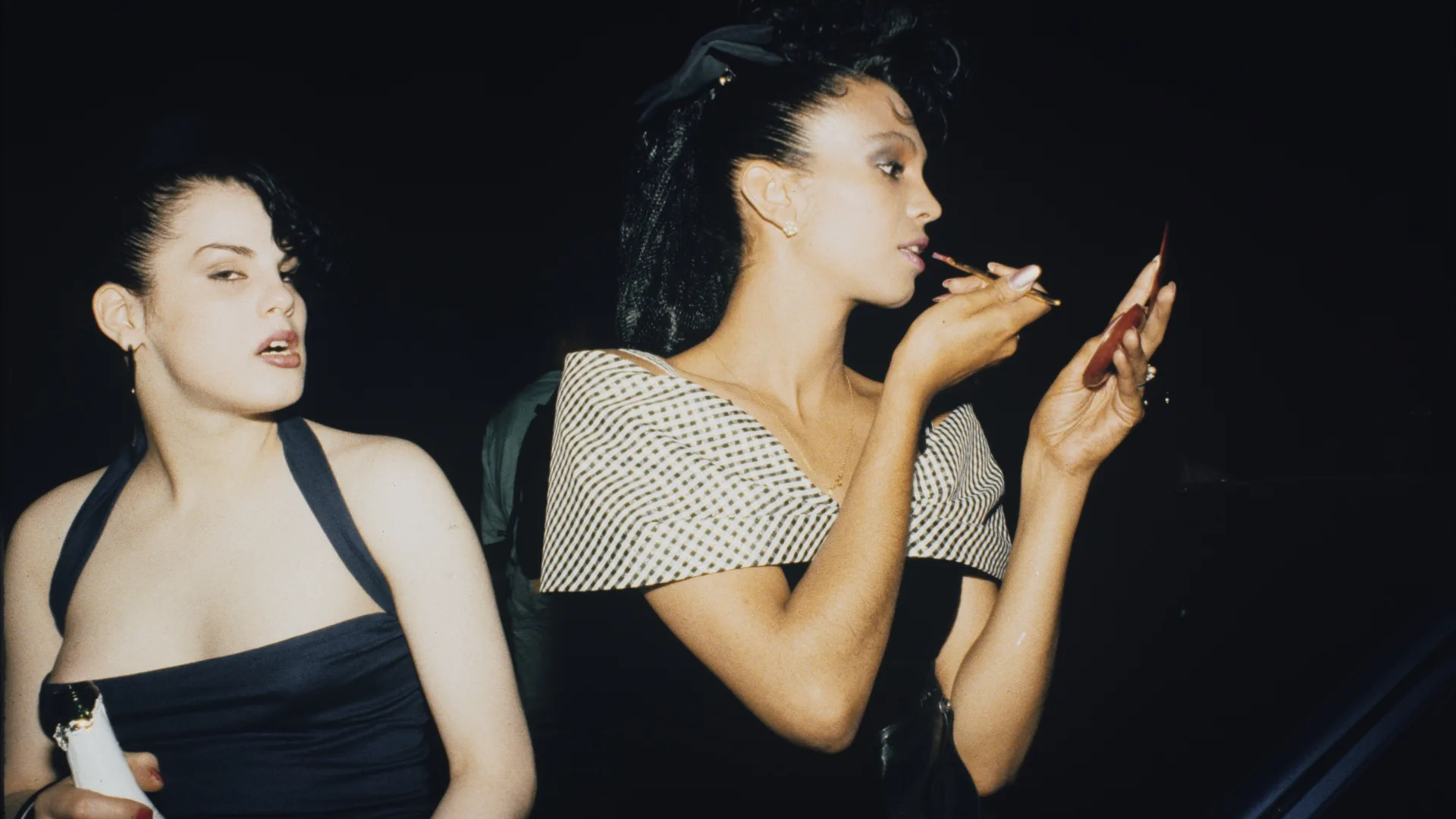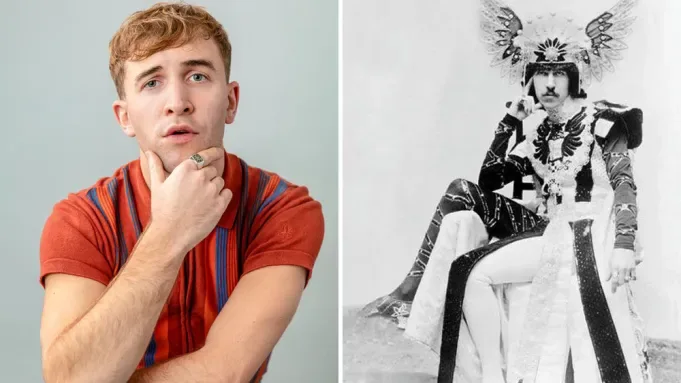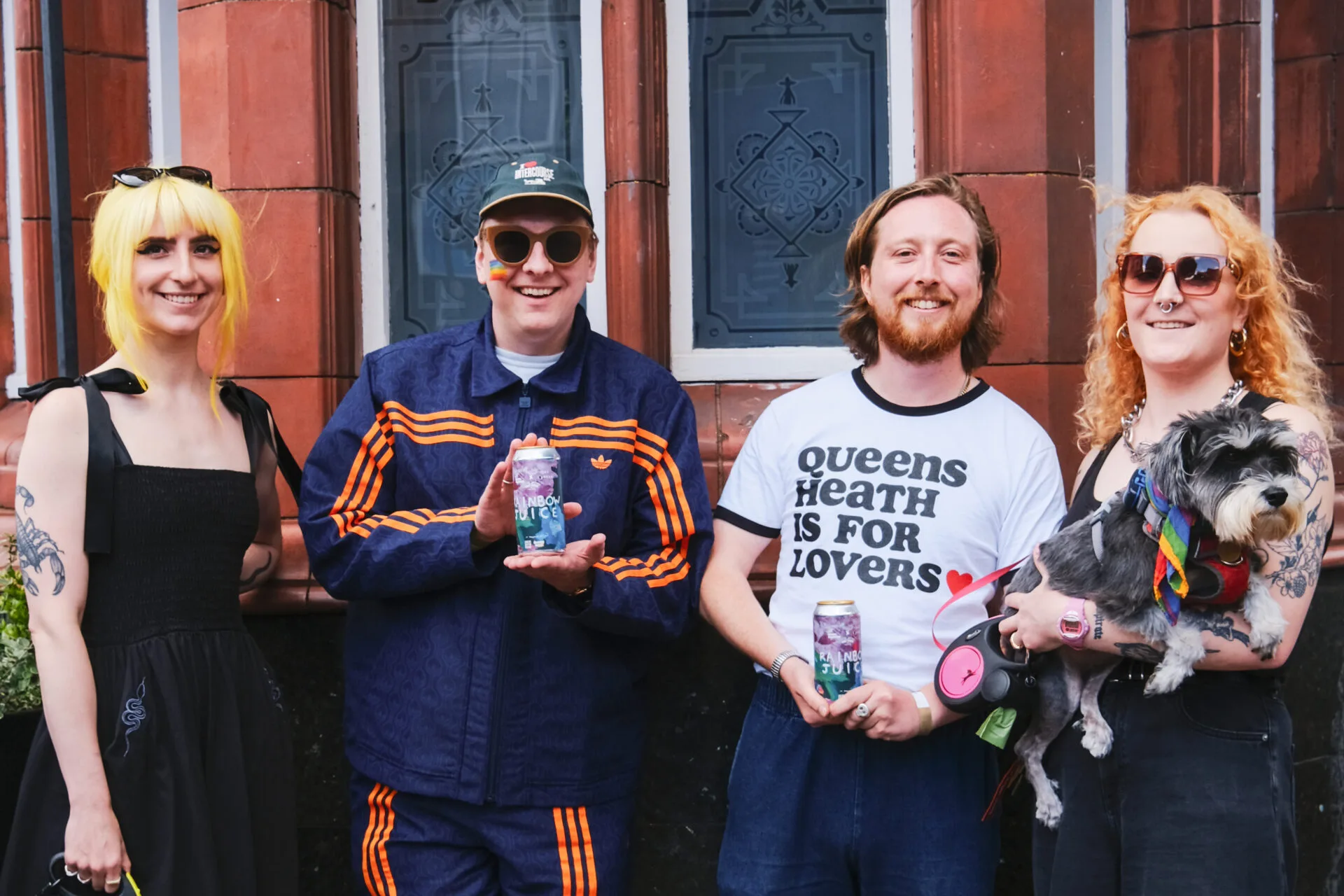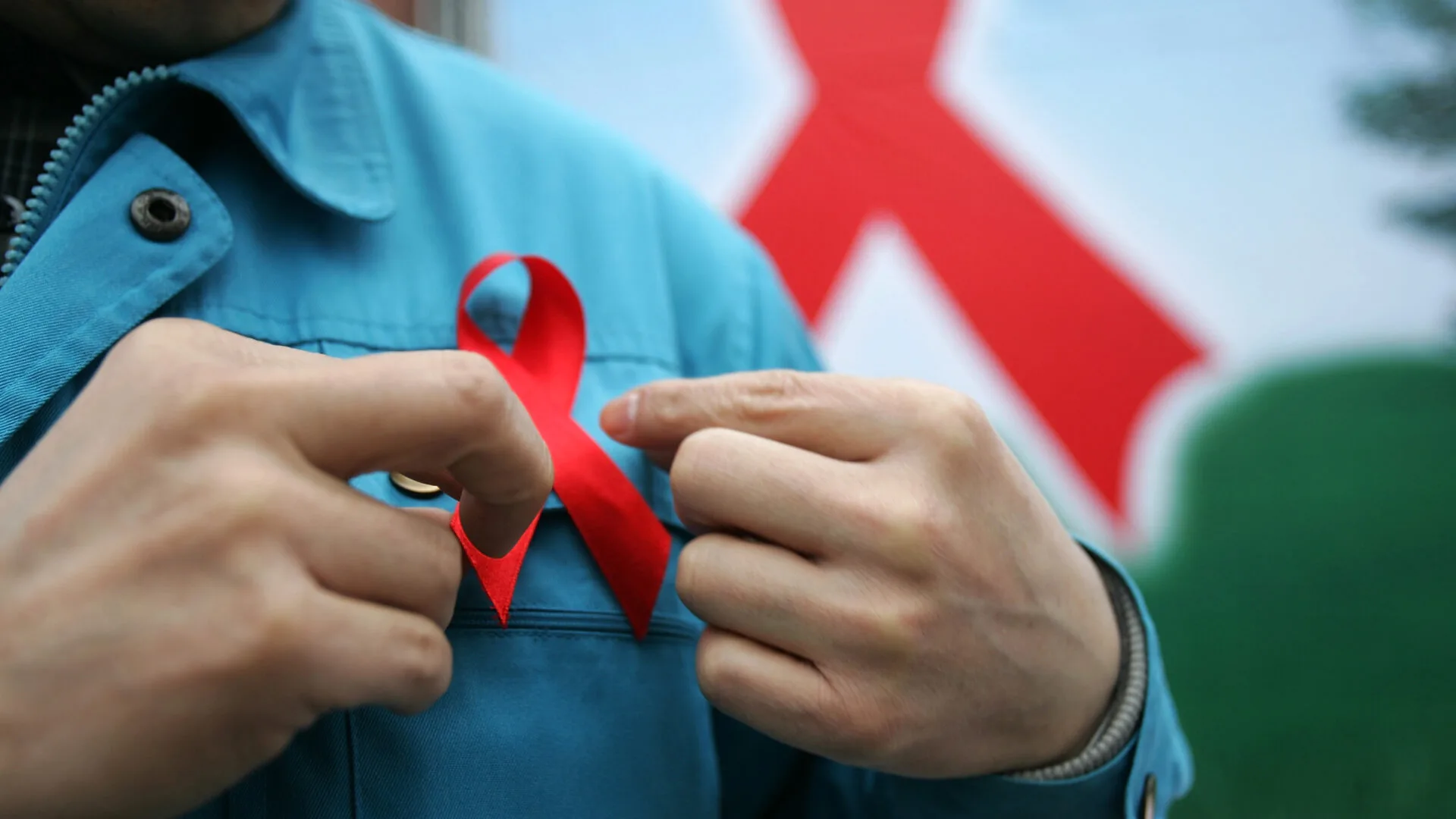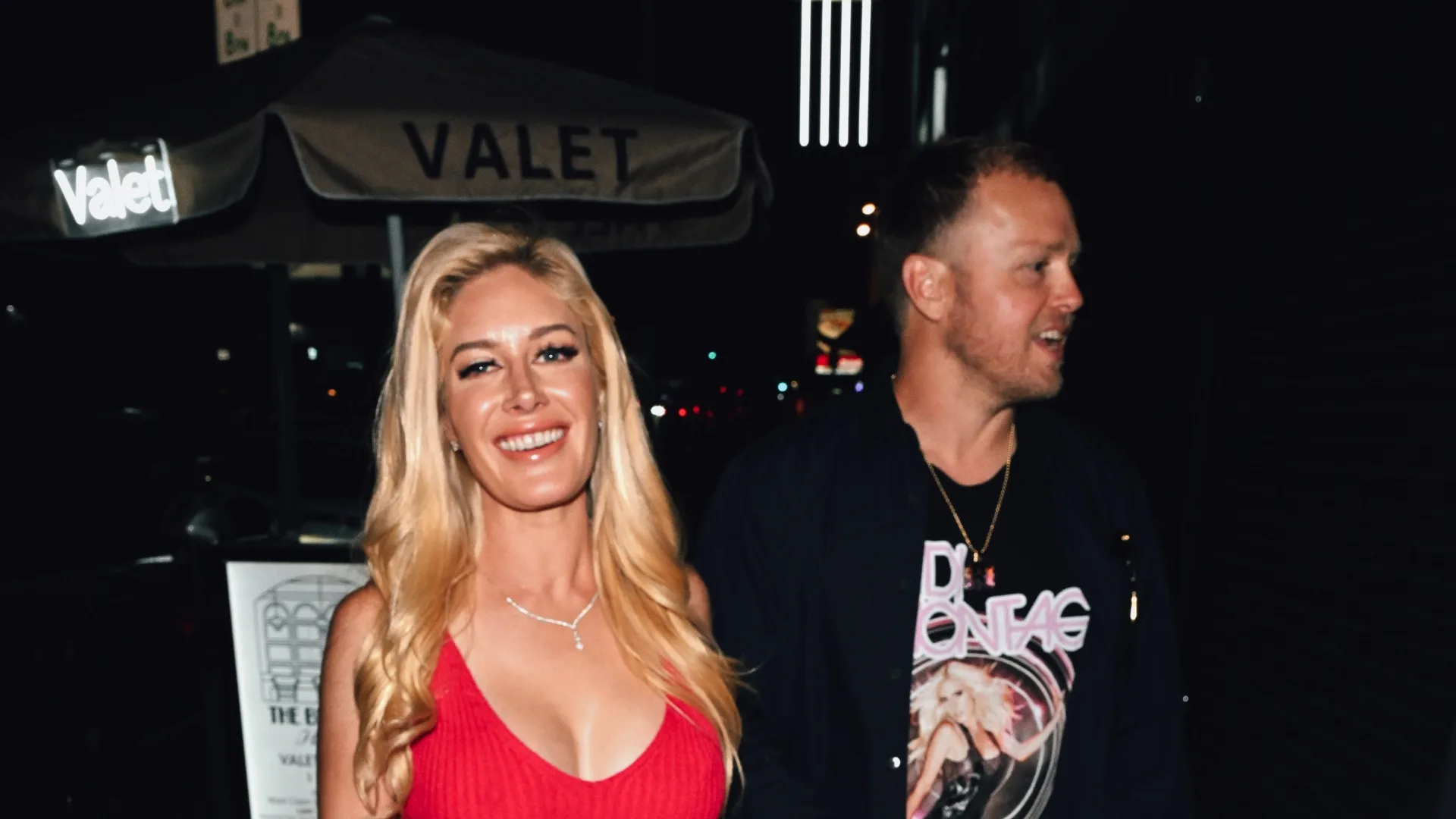It’s not easy writing music for a deceased loved one. But it wouldn’t be right to remember ballroom legends with a simpering ballad.
Luckily, GIDEÖN and Rush Davis’ new track, The Two Houses, out today on Homo-Centric records, is a sultry yet vibrating, pulsating house track. Dedicated to the icons of two of New York’s most iconic Queer ballroom families, the House of Xtravaganza and the House of LaBeija, Rush matches GIDEÖN’s acid production with a “roll call” of legendary names, some still living, but many of whom have passed, who he will not allow to be forgotten. Listen below.
“It’s a living eulogy,” says Rush, speaking to me from his home in New York. “It’s allowing people to understand that [Ballroom] is a community, and what I consider an institution, that allows people to explore their identity and find their family and find themselves, outside of mainstream society, which oftentimes ostracises those who are endeavoring to do that exploration of self.”
The Two Houses was once the ‘Simone track’, a dedication written by GIDEÖN for his friend Simone LaBeija, who passed away in 2023. When he showed it to Rush in a studio in 2024, the Grammy-nominated singer began to improvise an elegy of names.
“First of all, I’m such an Xtravaganza. I’m loyal as hell. So you are not going to have me singing about no other goddamn house without acknowledging mine,” laughs Rush. He’s accompanied by his Xtravaganza house grandmother, Coko, who clucks with pride at her grandson’s dedication.
“He’s my grandson, but I feel like he’s my son. He represents everywhere he goes. Wherever he goes, it’s an Xtravaganza in the building. I love him so much because he gets the family aspect. He gets the legacy.”
This has been essential since the house was conceived in 1982. “We were a family first, before we were a ballroom house,” says Coko of her Xtravaganzas. “And we leave every ball as a family. We come together and we leave together. That’s what we always did.”
First coming to prominence in the 1970s New York, “Houses” provided family community, support and even financial help for Black and Latino LGBTQ+ youth, many of whom were made homeless as young teens, ostracised from their biological parents.
The houses also competed against one another in Queer ballroom competitions, in runway and voguing categories. The Xtravaganzas were one of the most iconic houses on the scene, after featuring heavily in Jennie Livingston’s documentary Paris Is Burning (1990). Many of its most famous members, such as Carmen Xtravaganza, became celebrities in their own right.
Despite the competition they may have once shared on the floor, the LaBeijas and the Xtravaganzas come together with a unified power and respect on this track. “When I think of the House of LaBeija and the House of Xtravaganza,” says Rush, “they are, in terms of the mainstream, the two houses that are the most exploited… when Pride season comes, they’re quoting Pepper LaBeija, they’re quoting Venus Xtravaganza, and they never really get to understand who they are as they’re being commodified.”
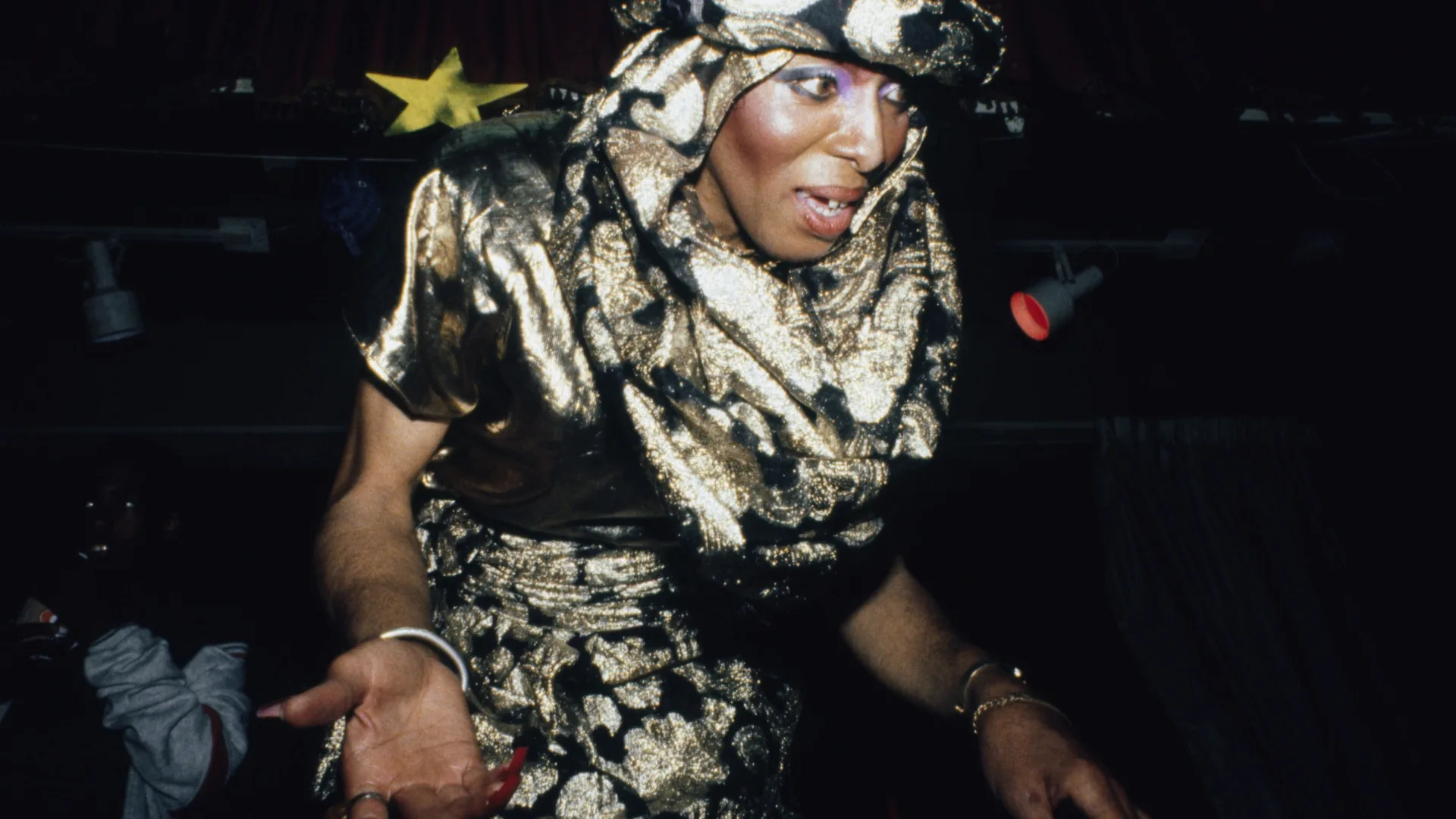
Coko nods in agreement before Rush continues. “I wanted to give light to the two houses that are the most influential, in my opinion, in terms of what the world thinks of as ballroom, and not only just apply the storytelling, but also the energy and the vibration of that.”
Coko even credits the LaBeijas with helping the Xtravaganzas establish themselves in the scene. “I have a lot of respect for them. They were one of the first ballroom houses and they paved the way.
“We, the Xtravaganzas, were a predominantly Latino house. Ballroom was predominantly African-American at the time, so they didn’t really want to accept us. It was a lot of what we call ‘shade’ and they acted like they didn’t see us… it was Pepper LaBeija, at one of her balls, who got on the mic and told [the] ballroom, ‘y’all are going to come up off of these kids. These children are turning it, and y’all are going to stop throwing shade, and y’all are going to score them what they deserve to be scored and see them.’ After that we started being judged fairly, and we started making a name for ourselves.”
Rush is already thinking long-term about releasing tracks for each of the other major houses, reflecting their own unique style and musical influence, “in order to keep the oral history alive through music.”
But there is no avoiding that this glorious track is borne of tragedy. The AIDS epidemic of the 1980s had a devastating effect on the ballroom scene, killing several of its most prominent members such as Willi Ninja and Angie Xtravaganza. Others, such as Venus Xtravaganza, were the targets of transphobic and homophobic homicidal violence. I ask the pair how they have managed the outsized grief that’s come with the joy they’ve shared.
“It didn’t bring us together,” Coko admits. “Everybody was grieving on their own, and however they could find solace. A few of us turned to drug addiction, and a few of us just left the ballroom scene all together because the grief was that severe. We lost more than half the house in a short period of time, Angie being one of the first, and then so many other house members right behind her… it took me a long time to make my way back to ballroom, and so many others also. We didn’t find out how each of us was dealing with it until the latter years when we all got back together. But we missed a lot of time grieving.”
Rush reflects this back onto the gradual slipping of LGBTQ+, and particularly Trans rights under the new Trump administration. “We’re going to get less and less resources for therapy, for PrEP… Those things are being stripped away. I’m bracing for what Coko is describing.”
Coko also now faces a new round of grief, as elder members of the scene pass away to other causes, such as cancer. She still finds it takes her a while to “bounce back” after losing someone, avoidable or not. “I’m hanging on to the kids. The kids are giving me my strength to keep going.”
With Rush being one of the children who Grandma Coko is counting on, The Two Houses is more than a song, or even an elegy. It is a gift to the living and dead. It is a memorial.
The word “icon” is used a lot these days, but despite its Queer slang use originating in the ballroom (meaning a specific status of performer), Rush doesn’t love how mainstream it has become. “I am so tired of us giving that title away the moment someone sees somebody in a look. It means so much more… all these different titles have a history attached to them, and an atmosphere, and a frequency.”
So what does make you an icon, or a hall-of-fame ballroom queen? What does get you a call-out on the memorial track? “Hah, that’s a major question,” says Coko. “they were all iconic to me, way before they became icons.”
She recalls Carmen Xtravaganza inspiring her to transition with her stunning beauty and humility, and the rare support she received from her biological mother. “She was a part of the ballroom legends and icons that are no longer here. That old school glam, Hollywood beauty. That’s what Carmen brought to the table.”
She then tells me about a time when Angie Xtravaganza used her sugar daddy money to feed homeless kids, telling Coko to stay in a restaurant in the Port Authority and buy them burgers while she sent them over from midtown. “All they had to do was walk into the shop and say, ‘Angie told me to come.’”
And finally, her “other half” Hector Xtravaganza, former grandfather of the House, who passed away in 2018. “Unbeknownst to a lot of people, he was paying people’s rent and he was giving people money to eat. And I’m not just talking about Xtravaganzas. I’m talking about ballroom people in general. And he would never post it on Facebook or Instagram, never asked for any of the accolades. He did it. And we didn’t find out he was doing all that until his memorial service. I didn’t even find out.”
She laughs. “We would have argued about it, because I’d have been like, ‘Why are you taking care of everybody? You need to take care of yourself.’ But that’s just another part of him that I didn’t know.
“And these little things, to me, make them icons. These little things made them legendary. They didn’t need social media to applaud them, and they don’t need to go in the ballroom and get a trophy for it. They did this because that’s who they were.”
The Two Houses is released in loving memory of: Simone Labeija (1980 – 2023), Crystal Labeija (1930-1982), Angie Xtravaganza (1964 – 1993), Carmen Xtravaganza (1961 – 2023), Hector Xtrava (1965 – 2018), Lorena Xtravaganza (1986 – 2012), Pepper Labeija (1948 – 2003), Venus Xtravaganza (1965 – 1988), Layleen Xtravaganza (1992 – 2019), Devine Gorgeous Gucci (1977 – 2025).
Words by Helen Meriel Thomas @iamhelenthomas

